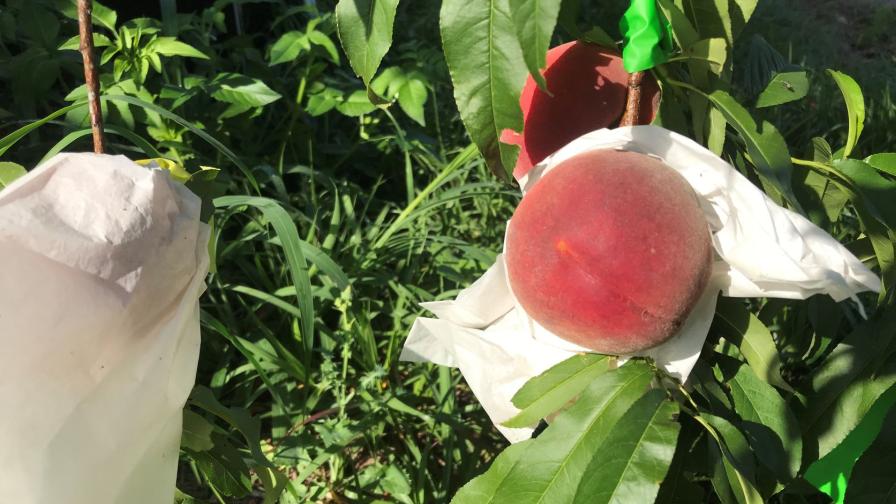Letting a Healthy Peach Crop Out of the Bag – Literally

Studies show that covering peach crops with water-resistant bags throughout the growing season can help protect the fruit from pests and diseases, leading to a more fruitful harvest for growers.
Photo by David Campbell
Peaches are among the most popular fruit of choice among consumers. Like any crop though, this stone fruit can be susceptible to pests and disease. To help keep insects and pathogens from damaging the fruit, growers can actually place bags around individual peaches, according to University of Florida researchers.
David Campbell, a UF/IFAS post-doctoral researcher, led the new research funded by a USDA Organic Research and Extension Initiative grant. In the study, scientists from UF/IFAS put colored paper bags on individual peaches at the Plant Science Research and Education Unit in Citra, FL, and at a commercial farm in Lake County.
They found that placing water-resistant bags around peaches, leaving the bags on the fruit throughout the growing season and removing them about seven days before harvest reduced injuries from insects and pathogens for organically grown peaches.
“Our findings demonstrate that bagging can be an effective strategy in conserving quality of specialty fruit,” says Danielle Treadwell, an Associate Professor of horticultural sciences who supervised Campbell’s study.
FLOOD-PROOF PEACH ROOTSTOCKS COULD HELP GROWERS SET NEW WATERMARK
Even though Florida farmers plant and harvest peaches in the spring, growers who want to bag their fruit should order now, Treadwell advises.
Growers in South-Central Florida harvest peaches as early as March, making it the first to market each year. In May, peaches become available from Georgia, South Carolina, and California, with peak domestic production running from June through August.
Treadwell says interested local growers can contact her at [email protected] to learn how to get the peach bags.









